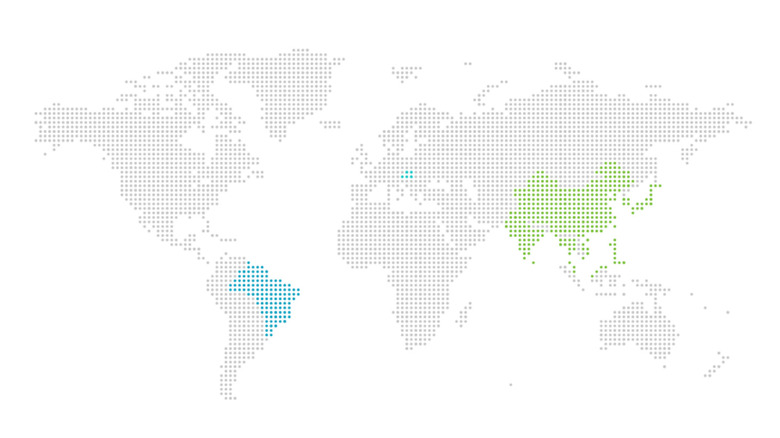Here's Where Acer Products Are Made Today
In recent decades, Acer has grown into one of the premiere forces dominating the computer and electronics industry alongside juggernauts like Dell and HP. The tech giant is well-regarded for its line of devices and peripherals, producing everything from sleek Chromebooks to its trademark Nitro and Predator gaming laptops — and the array of products on offer only becomes more expansive with each passing year.
Generally speaking, Acer products are known for being high-quality, but some current and potential consumers may like to know more about where these devices are created. Acer itself is a Taiwanese company and has been primarily located there since its founding in 1976. However, contrary to what some might expect, the computer manufacturer does not actually make the bulk of its products in Taiwan these days. Instead, the creation of most Acer devices is outsourced to production centers in other regions and countries, including one particular area of concentration.
Acer products are primarily made in China (and other countries))
Acer's primary center of production for its electronics may not be alongside the company headquarters in Taiwan, but that's not to say it isn't still close by. In fact, it's right off of the country's western coast, in China. According to a 2022 report published by Acer detailing its production suppliers, the company noted that all of its final assembly and component manufacturers are located in China — a fairly common occurrence for major Taiwan-based organizations, including Foxconn and its factories. In total, the Acer has 12 major final assembly suppliers in the neighboring country.
While Acer products are primarily made in China, the company also has suppliers and manufacturers in other parts of Asia. The site for information on the company's supply chain lists Taiwan, Malaysia, the Philippines, Singapore, Korea, Thailand, Vietnam, Japan, and India as other countries with manufacturing suppliers and production centers. India has become of particular importance to Acer in recent years, as the company revealed to Nikkei Asia that the country is its second-largest market behind the United States and it consequently intends to expand local production facilities in the area.
Acer has even expanded its manufacturing operations outside of Asia entirely — albeit in a fairly limited capacity. As it stands, the company currently has suppliers in two other continents: Europe and South America. Its European operations are centered in Hungary, while its South American operations are exclusively in Brazil. Manufacturing-wise, Acer has no substantial presence in North America, Africa, Australia, or Antarctica.
Acer's supply chain is informed by several sustainability initiatives
Some Acer customers may be interested to know that the company prioritizes several sustainability initiatives concerning how it operates its supply chain in China and other countries. Per Acer's official sustainable policy information, it focuses on energy efficiency, reducing greenhouse gas emissions, and waste management. One example of this policy in action is Acer increasing local production of desktop computers in China in a bid to lower energy and resource consumption. The company claims that this shift reduces the need for transporting materials in and out of the region, thereby cutting the use of disposable packaging and lowering emissions from moving vehicles.
Since the late 2000s, Acer has also placed an emphasis on efforts to responsibly source the minerals used by its suppliers to create products. In 2019, the company primarily sourced its minerals from the Democratic Republic of the Congo, Indonesia, and other nearby countries. Acer has acknowledged that it is dedicated to consistently reevaluating its main sources of materials in accordance with any social and environmental concerns that arise in these areas.
Generally speaking, sustainability appears to be a priority for Acer as the company looks to its future. The organization has constructed several long-term initiatives such as the Acer Climate Lab and Earthion, which are dedicated to addressing the intersection between environmental issues like climate change and the manufacturing process for Acer's supply chain.


